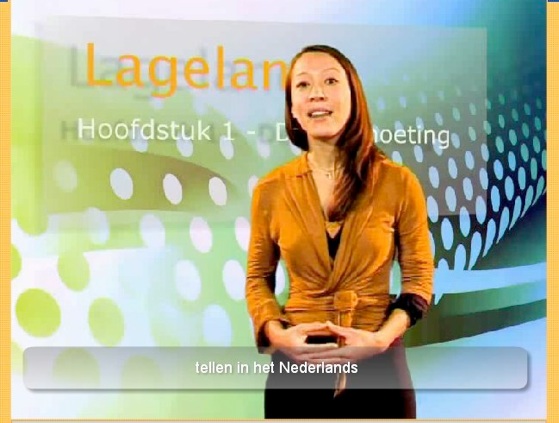
A Journey Through Online
Language Learning
Course Type > Comprehensive Courses
A comprehensive language course teaches its learners the basic language skills of listening, speaking, reading and writing, as well as grammar, vocabulary and pronunciation, such as is the case in the Dutch courses Lagelands and Hogelands. It may also teach more general transferable skills such as summarizing, debating and argumentation. Furthermore, it may focus on study skills and ‘learning to learn’ in order to encourage a more reflective approach to learning (example from Lagelands; example from Hogelands).
Comprehensive language courses tend to be tutor-supported and can be offered in a fully online or blended learning context. Although all syllabus types may be encountered in comprehensive courses, various syllabus types lend themselves more easily to comprehensive language teaching. The situational (for example Lagelands), notional-functional, skills-based and topic-based (for example Hogelands) approaches are particularly prevalent, and often combined.

Example of a spoken introduction to a lesson in Lagelands. The story line of every chapter in Lagelands is explained at the start of the lesson in Dutch. Students have the possibility to watch the video with either English or Dutch subtitles.
Activities focus on the development of all main language skills and tend to be a mixture of tutor-supported as well as self-correcting exercises and tasks. Comprehensive language courses can be developed for all levels, from beginners to advanced learners, with shifts in the importance and recurrence of certain activities depending on the students’ level.
Things to consider
- What are the learning outcomes of your course and how do you want to achieve them in an online or blended learning environment?
- What is the balance between the different language skills, i.e. do you want your learners to practise certain skills more or more in depth than others? You also need to consider whether you want to include activities that develop students’ transferable skills.
- How much support can you or are you willing to offer as a tutor? This you need to keep in mind when developing the activities that students need to complete.
- How much time do you have available for the development of the course? Developing a comprehensive online course will consume a lot of your time! Even if you are starting from paper-based materials, converting them to the online environment you have chosen requires a considerable amount of time.
- How much (technical) support do you have to develop a comprehensive course? Your choice of web application should largely depend on the support you have and your own technical knowledge and experience. If you have little technical know-how and limited support you best use the VLE of your institution.
Examples:

Disclaimer I Freedom of Information I Accessibility I Contact Us
University College London, Gower Street, London, WC1E 6BT Tel: +44 (0) 20 7679 2000
© UCL 1999–2011